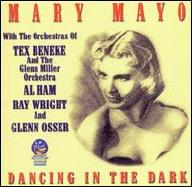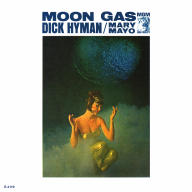Dubbed "a glimpse at the possible sounds of the 22nd century" in the liner notes, Moon Gas was by far Mayo's most notable effort and remains much-prized by collectors of exotica and early electronic recordings, although she enjoyed her greatest commercial success thanks to Coca-Cola: when the advertising agency McCann Erickson hired Ham to assemble a wholesome folk group to record their jingle I'd Like to Give the World a Coke, he tapped Mayo and their daughter Lorri to lead the studio chorus, and when the commercial proved a cultural phenomenon, the song was re-recorded under the title I'd Like to Teach the World to Sing, credited to the Hillside Singers. The Metromedia label subsequently released two full-length Hillside Singers LPs, including a Christmas recording, both featuring Mayo. In 1986 the label also issued Time Remembered, a collection of songs she cut for the NPR radio series American Popular Song nine years earlier. Unfortunately, Mayo did not live to see the album's release -- she died of cancer in December of 1985. ~ Jason Ankeny, Rovi
Mary Mayo
Biography
Mary Mayo was the co-creator of one of the most unique and compelling records to emerge from the space age pop era, 1963's Moon Gas -- a collaboration with keyboardist/arranger Dick Hyman and guitarist Vinnie Bell, the album is highlighted by Mayo's ethereal and enchanting wordless vocals, a performance suggesting that of a human Theremin in both its alien approach and its otherworldly beauty. According to the spaceagepop.com website, Mayo was born July 20, 1924, in Statesville, NC, making her professional debut on Charlotte station WWBT soon after World War II. She was soon hired by saxophonist Tex Beneke, then leading the postwar version of the Glenn Miller Orchestra -- while on tour with the group, Mayo met bassist and arranger Al Ham, who later became her husband. The couple settled in New York City, and while Ham worked as a producer for Columbia Records, Mayo raised their daughter Lorri while also contributing uncredited vocals to her husband's studio sessions. At various points during the 1950s she also fronted a vocal jazz group called the Manhattanaires alongside a pre-Nutty Squirrels Don Elliott and recorded a handful of solo singles for Columbia.
Top Tracks
Albums
Videos
Close













